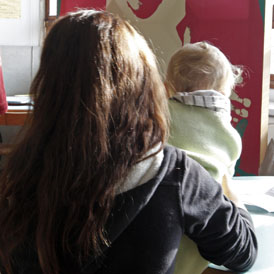‘Quarter of a million children pushed into poverty’
An overhaul of the benefits system risks pushing 250,000 children into poverty, warns a leading children’s charity. The changes could mean 150,000 working single mothers losing £68 a week.

The report by Save the Children warns of a “blind spot” in the government’s new universal credit system that means 150,000 working single mothers will lose £3,500 a year.
The Department for Work and Pensions insists that the new streamlined system will make work pay and will leave many families better off. It replaces the current collection of benefits and tax credits.
But Save the Children says an impact assessment by the DWP shows universal credit will also result in lower entitlements for 1.1m households with children. That would include a single mother with three children earning 242 a week, or just above the minimum wage, the charity says.
Chief executive Justin Forsyth said that the Universal Credit would help some families, but “mums working hard to stay above the breadline are its big blind spot”.
“It’s incredibly hard bringing up three kids on £370 a week,” he added. “Losing almost a fifth of that will push many families over the edge.”
Work and Pensions Secretary Iain Duncan Smith is expected to say on Tuesday that growing up with married parents is better for children. Mr Duncan Smith will publish a government paper which says that children living with "both birth parents" are more likely to have a good education and job prospects.
The paper says marriage is better than cohabitation for children because couples who are married are less likely to split up. Mr Duncan Smith is calling for an end to spending "dysfunctional money" on problem families which only deals with short-term difficulties.
He is expected to say that councils and government agencies should focus on early intervention to help people turn their lives around before there are serious problems.